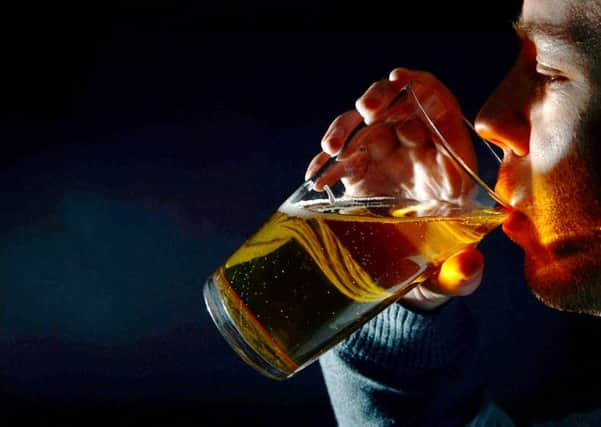Could Dry January campaignbe more harmful than good?
This article contains affiliate links. We may earn a small commission on items purchased through this article, but that does not affect our editorial judgement.


The Dry January campaign estimates that last year over 2 million people cut down their drinking for January.
But Ian Hamilton, a lecturer at York University, told the British Medical journal that there is no evidence that such campaigns work and that they may have unintended consequences.
Advertisement
Hide AdAdvertisement
Hide AdHe said: Firstly, it is not clear who Dry January is targeting. Trying to communicate a message about alcohol to the over 65s at the same time as the under 25s “risks the message not being heard, as the way these groups use alcohol is likely to be different.
“Dry January also risks sending out an “all or nothing” message about alcohol, and could be adding to the confusion we know exists in communicating messages about alcohol. For example, in public health advice about safe levels of alcohol consumption using recommended maximum daily or weekly units of alcohol.
“Although not the intention, people may view their 31 days of abstinence as permission to return to hazardous levels of consumption till next New Year’s day.”
He also points out that, for some heavy drinkers, abrupt abstention from alcohol can induce serious symptoms such as seizures.
Advertisement
Hide AdAdvertisement
Hide AdBut Ian Gilmore, honorary professor at Liverpool University, thinks such campaigns are likely to help people at least reflect on their drinking.
He points out that in the UK, our per capita consumption of alcohol has doubled over 40 years, and we have 1.5 million heavily dependent drinkers in this country.
He said: “What could possibly be wrong with encouraging and supporting the estimated two million or so adults who decide on Dry January - to take a month off the booze after the festive period and have time to reflect on their drinking?
He points to an independent evaluation of 2015’s Dry January by Public Health England showing that 67% of participants said they had had a sustained drop in their drinking six months on.
Advertisement
Hide AdAdvertisement
Hide AdAn earlier evaluation by the University of Sussex found that 79% of participants said they saved money, 62% said they slept better and had more energy, and 49% said they lost weight.
Ian Gilmore said: “It should be stressed that the campaign is aimed at social not dependent drinkers, and heavy drinkers are recommended to see their GP before stopping suddenly and completely. But evaluations indicate that campaigns like Dry January are being used more as a way of people examining their relationship with alcohol and making longer term changes.
“Until we know of something better, let’s support growing grass-roots movements like Dry January.”
Don’t miss out on all the latest breaking news where you live.
Advertisement
Hide AdAdvertisement
Hide AdHere are four ways you can be sure you’ll be amongst the first to know what’s going on.
1) Make our website your homepage at www.eastbourneherald.co.uk/
2) Like our Facebook page at Text to display
3) Follow us on Twitter @Eastbournenews
4) Register with us by clicking on ‘sign in’ (top right corner). You can then receive our daily newsletter AND add your point of view to stories that you read here.
And do share with your family and friends - so they don’t miss out!
The Eastbourne Herald - always the first with your local news.
Be part of it.